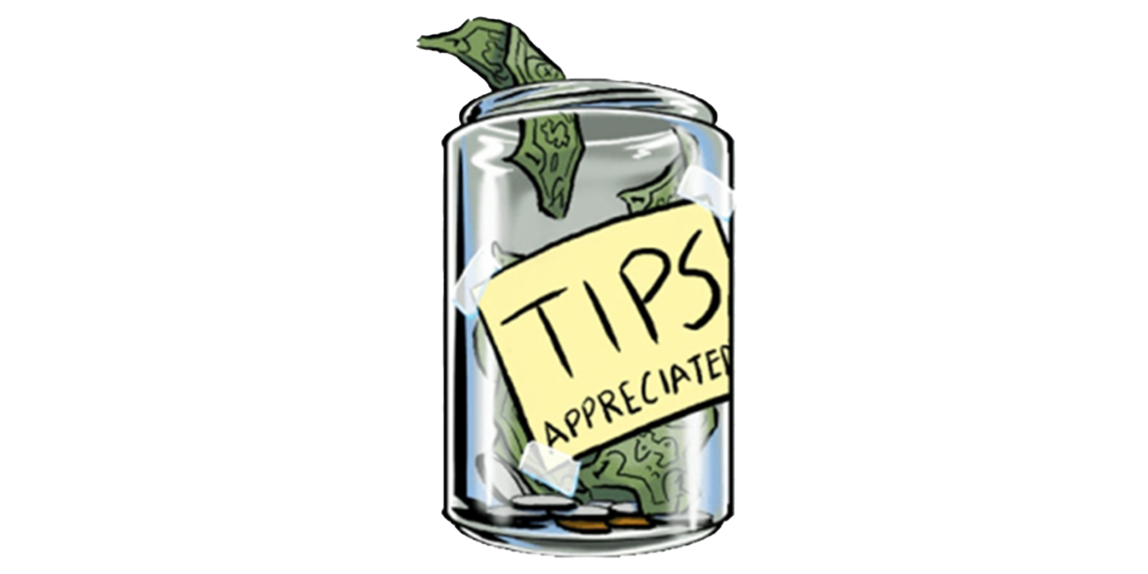Discussions about minimum wage, tipping, and the tipped minimum wage are nothing new to me; unlike most white-collar jobs talking about wages in hospitality has never been taboo. If anything, relying on tips for wages meant my coworkers and I were constantly discussing how much we earned every night. Dissecting our tips for any rationale or formula explaining why that night went so well or so wrong. As a part-timer like me it was just so I could get a handle on my spending money and beer budget, but for my full-time friends they were budgeting out how to pay rent on time.
I spent years arguing with coworkers about the merits and disadvantages of tips, what should be changed, and if we thought anything would ever actually change. In truth, I think most restaurant workers don’t believe that tipping will ever change even with all of the problems that have been thoroughly documented and experienced firsthand by anyone who has worked in a restaurant/bar/etc. The concept has just become so deeply wrapped up with this American ideal of hospitality that it’s hard to imagine untangling pay from the idea that you should be rewarded based on how hard you work and the level of service you provide (even though in reality tipping actually has very little to do with these factors).
But even as someone who spent years working within this weird and at times exploitative labor system, I had no idea of the horrific origins of the tipped minimum wage and subminimum wages until I listened to this episode of Beyond the Scenes. In hindsight it makes perfect sense that the tipped minimum wage has its historical origins in slavery and the post-Civil War era, but I couldn’t believe how that fact has managed to be squirreled away in American society and the tipped minimum wage has been warped into this positive
(If you aren’t already I highly recommend subscribing to the Beyond the Scenes podcast, they cover a lot of important social issues in-depth and Roy Wood Jr. is a treasure as host)
I was a bar manager in Michigan when the movement to eliminate tipping and the tipped minimum wage started to take root in the United States. The Union Square Hospitality Group had just announced it was moving to a no-tipping pay structure (which it ended up abandoning five years later due to the pandemic according to Danny Meyer), and movements to increase the general minimum wage were starting to gain victories all over the country. My bosses asked me to attend a meeting that was arranged by a group of Michigan restaurant workers who wanted to oppose the elimination of the tipped minimum wage. Back then I didn’t have any opinion on the matter or any real knowledge of how the tipped minimum wage worked. It was just this thing that had always existed and always would as far as I was concerned. Besides, my tips had always been great and I was making plenty for a twenty-something year old kid just meandering through life. My bosses told me that if the tipped minimum wage was eliminated it would be catastrophic for our bar, which didn’t have a kitchen to bring in customers and couldn’t afford to pay our servers or bartenders those kinds of wages.
I remember the meeting was in one of the new hip restaurants making waves in the trendy neighborhood we occupied, all two blocks of it. Everyone speaking spent a lot of time pointing out how tips made them a lot more money than minimum wage ever would and what they estimated the loss in pay would be for tipped workers. And how tips let them pay for houses and insurance and all kinds of great things. After an hour of pontificating there were some brief discussions organizing and an email list was passed around that I don’t think I actually signed up for.
Now like I said I didn’t have a strong opinion one way or another at the time about tipping, but I was starting to become more socially conscious and also extremely suspicious (and maybe a little antagonistic) when it came to anyone telling me doing something was in my own self-interest. So it was easy to recognize that everyone in this meeting had come with the rabid support of their employers (owners), and that everyone attending this meeting was exactly the same as me: front of house, white, on the younger side, well-educated, and thriving in an labor environment where tips were always flowing in their direction (and historically always had been). But I ended up leaving Michigan (and the restaurant industry) shortly after that meeting and missed most of the action. Eventually the One Fair Wage movement was victorious and legislation to increase the minimum wage as well as eventually eliminate the tipped minimum wage was passed. However that legislation is currently undergoing a battle in the court system so we’ll have to see how everything shakes out.
But I think now is a prime moment for the no-tipping movement to gain even further ground in the United States. Americans have reached a tipping point (pun intended) when it comes to gratuity as part of their goods and services. Tipping fatigue is the new buzzword thanks to the overproliferation of tip screens at every checkout counter imaginable to try and bump up employee pay without incurring any cost to the actual business itself (Just Google “tipping is out of control” and you’ll be inundated with hundreds of articles on the subject from the past year). Suffice to say I think we’re all pretty sick of the rigamarole and anxiety-inducing dance that tipping has turned into. Hopefully soon enough a tip will turn into what it should be: an extra, a bonus, and a concept completely separate from the wages that we all depend on to live.
